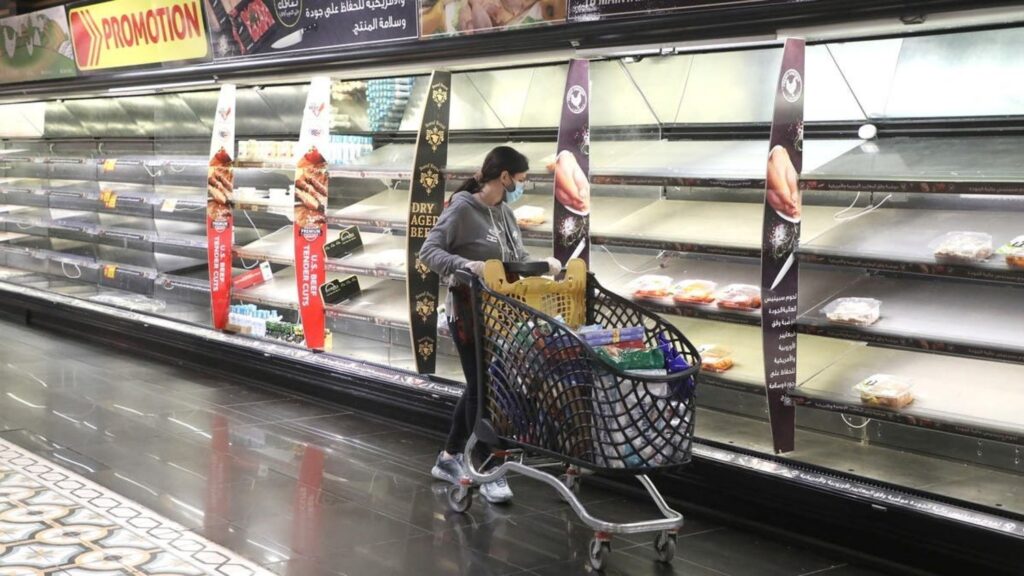On Tuesday, the Famine Early Warning Systems Network (FEWS NET) released a key message update. The report warned of the spike in staple food prices, which is leading to widening consumption gaps among the very poor.
As Israeli strikes relentlessly cause destruction in southern areas, the number of cases in a state of food security-related crisis continues to increase, especially as Israeli operations burn large swathes of agricultural land and disrupt residents’ livelihood opportunities.
Spike in Staple Food Prices
The report highlights that the national average prices of white rice and wheat flour have increased by 13 percent and 26 percent respectively between June and July.
Such an increase was connected to the impacts of the conflict that has impacted economic activity overall in Lebanon, limited quantities of subsidized wheat remaining, and price violations by food vendors.
Compared to last year, the overall price of the food basket has risen by eight percent, with the price of fruits increasing by 32 percent, that of meats and derivatives by 21 percent, that of fatty and oily products by 10 percent and that of canned food by eight percent according to the Ministry of Economy and Trade.
The report adds that poor and conflict affected households in the country’s most vulnerable regions in the North and South are particularly vulnerable to price shocks.
In Lebanon, only six percent of the income of the poorest quintile of the population is paid in United States Dollar according to the World Bank. As such, while the majority of the country’s economy becomes dollarized, the country’s poorest continue earning considerably less, often in Lebanese pounds, amidst widespread exploitation and lack of monitoring and adequate social protection mechanisms.
No Resolution in Sight
On the level of both the economic crisis and the conflict, resolution remains far from attainment.
Economically, the Lebanese government remains far from implementing the urgently needed revamp of political economy trends. The state continues relying on rentier and ad-hoc forms of revenue generation, while disregarding sustainable and productive sectors.
More recently, the Central Bank has been funneling funds meant to the state budget into the Bank to maintain currency stability, which in turn is funneling money away from vital sectors and services, and further accentuating the deteriorated state of the poorest groups’ access to basic needs.
Conflict-wise, amidst Israel’s repeated undermining of the attainment of a ceasefire agreement, the escalatory trend of the scope of the strikes on Gaza and Lebanon, and the failure of international actors to adequately intervene, the conflict is expected to continue.
As of August 23, Israeli strikes have killed 133 civilians in Lebanon, including 23 children and have led to the loss of 340,000 farm animals. In addition, 3,000 buildings have been destroyed and 1,700 hectares of agricultural land have been damaged.
